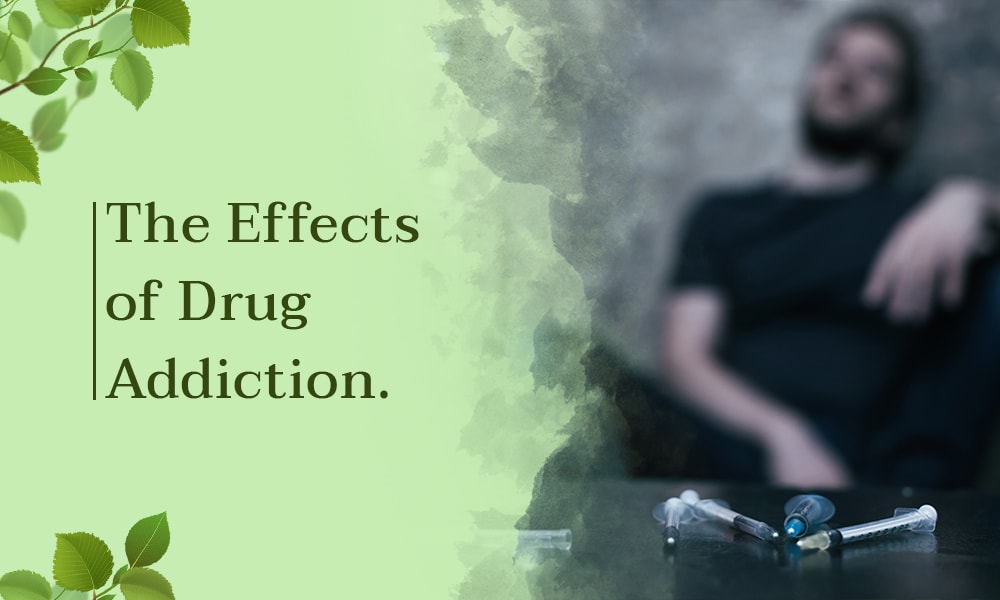- Jofa Tower 5th floor, SB-23, Block 13 C, Main University Rd, Gulshan-e-Iqbal, Karachi.
- +92 322 3746726
- tis@transformation.com.pk
The Effects of Drug Addiction

Psychological Evaluation for Adults
October 3, 2023
Can a Psychological Evaluation Diagnose Autism?
October 25, 2023Psychological Effects:
Mental Health Disorders: Drug addiction can contribute to or exacerbate mental health conditions such as anxiety, depression, and psychosis.
Cognitive Impairment: Long-term drug use can influence cognitive skills like memory, attention, and decision-making.
Emotional Instability and Mood Swings: Drugs can upset the brain's regular chemical balance, causing mood swings, irritation, and emotional instability.
Mental Illness Risk Increase: Substance misuse is associated with an increased chance of acquiring mental diseases such as schizophrenia and bipolar disorder, particularly in people who have a hereditary predisposition.
Drug addiction is a chronic medical disorder that may be treated. It is caused by complex connections between a person's surroundings, brain circuits, genetics, and life events. Despite the negative consequences, those addicted to drugs use them obsessively.
Drug addiction may have profound implications for a person's physical, psychological, and social well-being. These effects can differ based on the medication, the length and intensity of usage, and the individual's general health. Here are some of the expected effects of drug addiction:
Physical Health Effects:
Withdrawal and Tolerance:With repeated drug usage, the body frequently develops a tolerance to the drug, requiring larger amounts of the drug to achieve the desired effects. When a person suddenly stops using drugs, withdrawal symptoms can arise, which can be physically and emotionally uncomfortable.
Physical Health Deterioration:Chronic drug use can cause a variety of health problems, including harm to important organs such as the heart, liver, and lungs. Infections and disorders such as HIV and hepatitis can also result from injection drug usage.
Immune System Impairment:Many medicines have the potential to damage the immune system, rendering the user more susceptible to infections and diseases.
Cardiovascular Problems:Addiction to drugs can cause cardiac issues such as irregular heartbeats, high blood pressure, and an increased risk of heart attack.
Effects on Social and Interpersonal Relationships:
Isolation: Addiction can cause individuals to withdraw from family, friends, and social activities, leading to social isolation.
Relationship Strain: Addiction frequently stresses relationships owing to unstable behavior, lying, and unfulfilled promises.
Financial Issues: Maintaining a drug habit can be expensive, leading to financial difficulties, job loss, and even criminal activities to fund the addiction.
Legal Consequences: Substance misuse can result in legal troubles, such as arrests and convictions for illegal drug possession or distribution.
Neglect of Responsibilities: Individuals struggling with addiction may neglect their responsibilities at work, school, or home, leading to negative consequences.

There is a Risk of Overdose and Death:
- Overdose: Overdose, which can be lethal, is a danger of drug addiction. This danger is increased when medications are mixed, greater doses are used, or contaminated substances are consumed.
- Accidents and Injuries: Impaired judgment and coordination under the influence of drugs can lead to accidents, injuries, and fatalities.
Impact on Family and Community:
- Family Disruption:Addiction may pull families apart, producing emotional suffering, disagreements, and communication failures.
- Community Impact: Drug addiction can increase crime rates, strain healthcare systems, and place additional pressure on social services.
Effects of Drug Addiction on the Brain:
All drugs, including nicotine, cocaine, and marijuana, have an effect on the brain's "reward" circuit, which is part of the limbic system. This region of the brain influences instinct and emotion. Drugs attack this mechanism, causing massive levels of dopamine a brain chemical that aids in the regulation of emotions and sensations of pleasure to flood the brain. This surge of dopamine is what generates the "high." It is one of the most common causes of drug addiction.Although drug usage may be voluntary at first, drugs can affect brain chemistry. This can alter how the brain functions and impair a person's capacity to make decisions. It has the potential to cause extreme cravings and compulsive drug usage.
This behavior can develop into a substance dependency or drug and alcohol addiction over time.Alcohol has both short- and long-term impacts on the brain, as well as disrupting communication networks. These can have an impact on mood, behavior, and other cognitive functions.Alcohol-induced nutritional shortages, convulsions, and liver illness can all cause brain damage. Alcohol consumption during pregnancy can affect the brains of unborn newborns, resulting in fetal alcohol spectrum disorders.According to reports, alcohol-related brain disorders may often be addressed with adequate therapy. Abstinence from alcohol for months or years can help partially recover cognitive capacities such as memory.
These changes in the chemistry and functioning of the brain contribute to the addiction cycle, making it a complicated and difficult condition to cure. However, because the brain is flexible, it is possible to progressively restore healthier brain function and diminish the hold of addiction with appropriate treatment, counseling, and support.It's crucial to remember that with the right care and support, drug addiction can be recovered. If you or someone you love is suffering from drug addiction, obtaining expert assistance and support is critical to living a happier and more fulfilled life.




